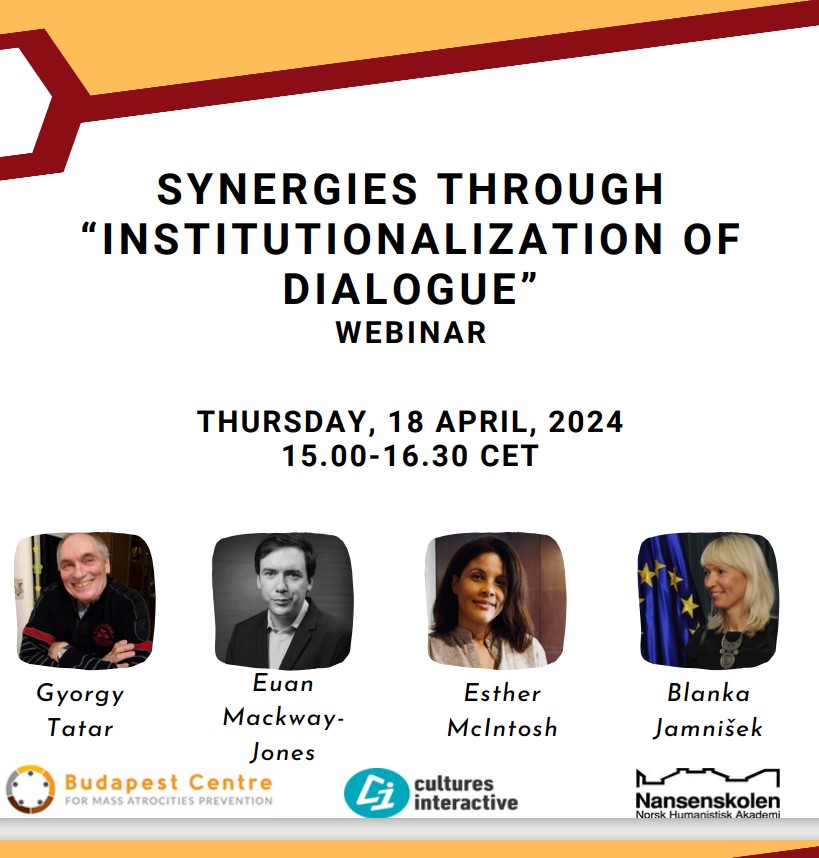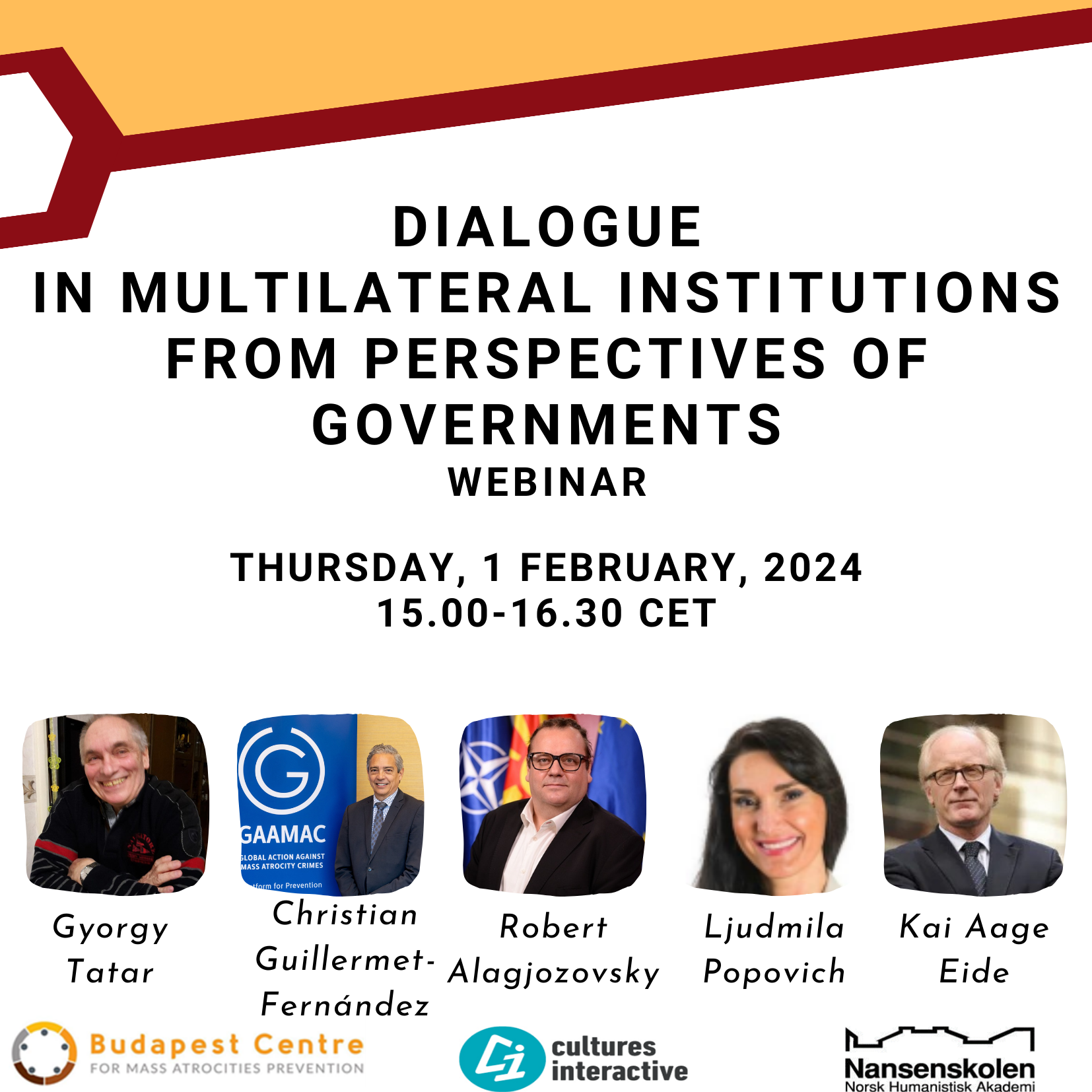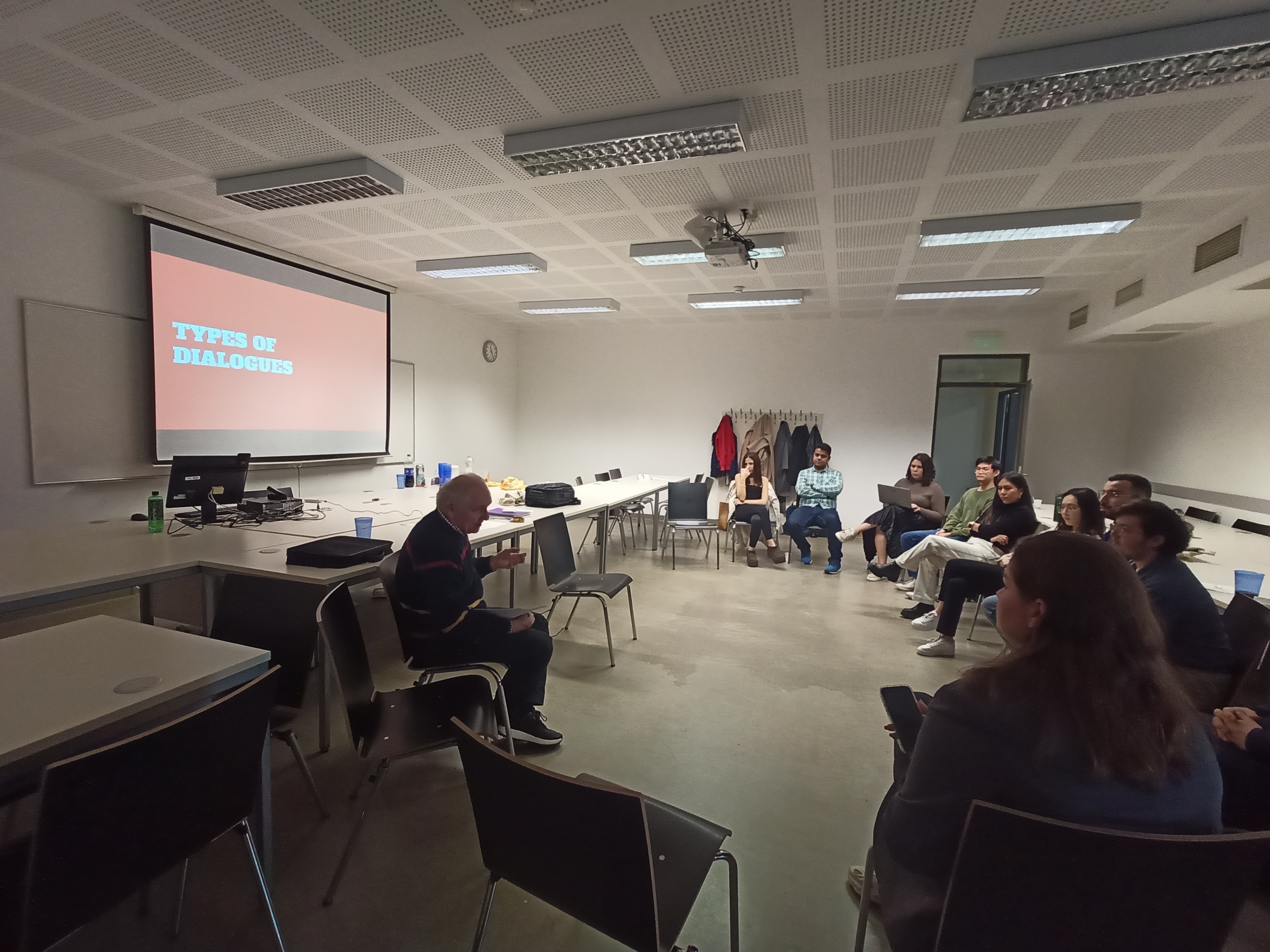- |
- Category: Allience for Dialogue
- |
- Category: Allience for Dialogue
Dear Visitor!
The Budapest Centre for Dialogue and Mass Atrocities Prevention, Cultures Interactive (e.V.), NGO in Violence Prevention and Inter-Cultural Dialogue, and the Nansen Academy organized a series of webinars discussing the Initiative “Institutionalization of Dialogue” and established the Core Team of the “Alliance for Dialogue”.- |
- Category: Events
- |
- Category: Events

- |
- Category: Events
- |
- Category: Events
The interview is part of our Initiative for regular and consistent deployment of dialogue in international and national decision-making mechanisms and education. Prominent practitioners share their views and experiences in that context.
Mr. Vollebaek presents concrete examples showing the increased need and significance of dialogue for effectively addressing contemporary security challenges. To learn the details please click here.
- |
- Category: Events
- |
- Category: Events
The record of the webinar can be watched here:
- |
- Category: Events
- |
- Category: Events
During this event senior governmental officials will share their views on how dialogue could support the decisions in multilateral organizations to sustainably address global challenges and respond to risks of mass atrocity crimes.
Please click here to access the invitation!
Please click here to access the registration link! The webinar link will be sent to your email address before the event.
- |
- Category: Publications
- |
- Category: Publications
- |
- Category: Publications
- |
- Category: Publications
You may read the article if you click here.
- |
- Category: Events
- |
- Category: Events
Inspired by the trainings of the Nansen Center for Peace and Dialogue, the Budapest Centre for Dialogue and Mass Atrocities Prevention completed its first interactive and practice oriented skills building in facilitation of dialogue being a tool for managing diversities, preventing and handling radicalization and violent conflicts. The three four hour sessions took place in cooperation with the College for Advanced Studies of Diplomacy in Practice at the Corvinus University of Budapest.
Based on the positive feedback received from the participants, the Budapest Centre will continue its skills building activities and tailor the agenda of the sessions to the needs of students, political activists and businesspersons with the view to increase their potentials for engaging in communication despite conflicting views.







